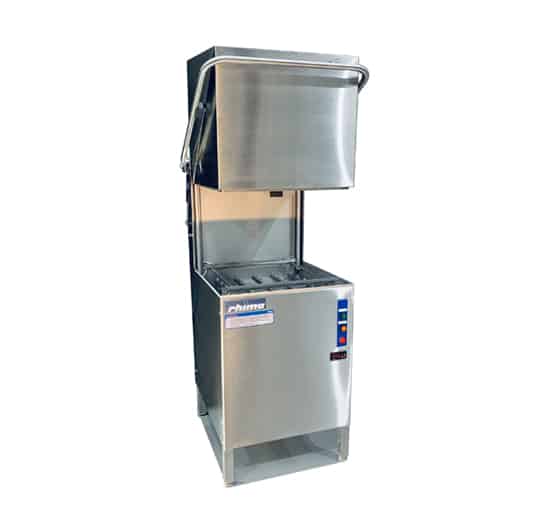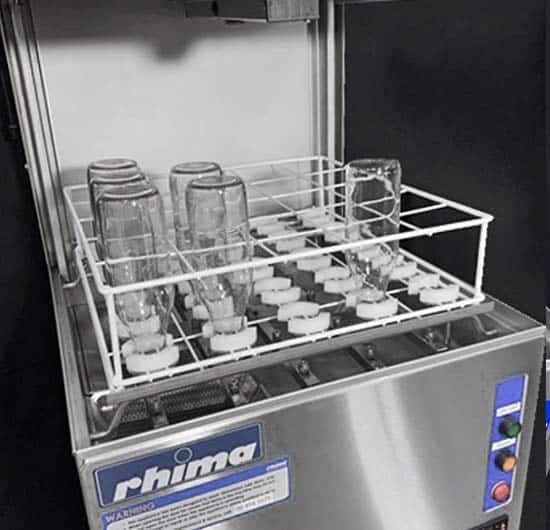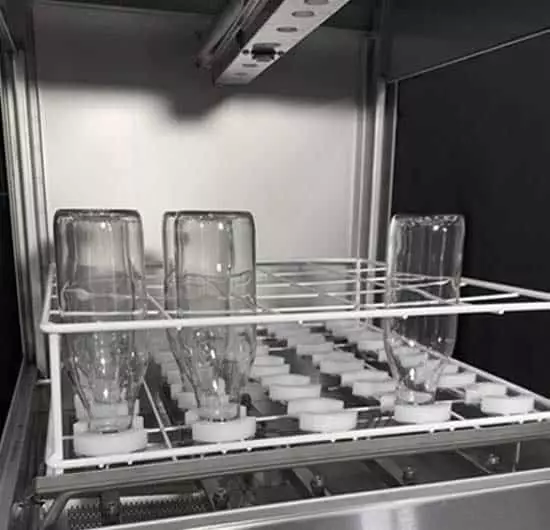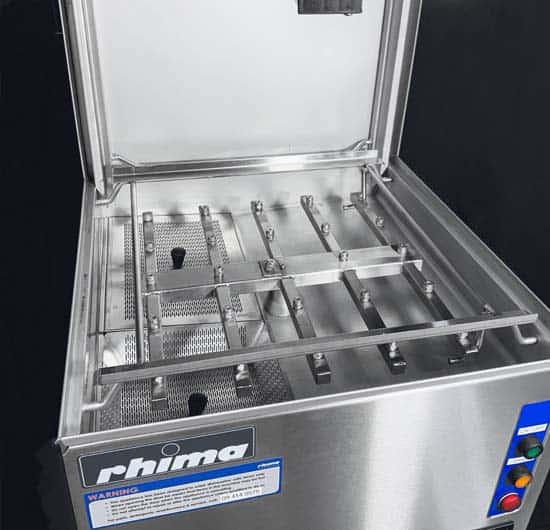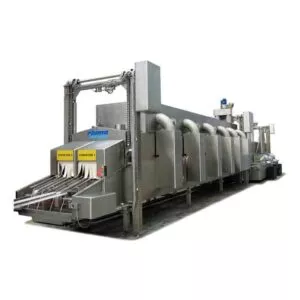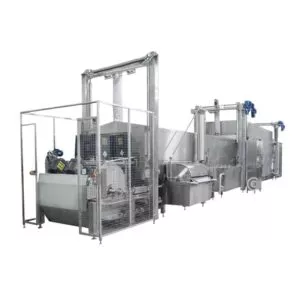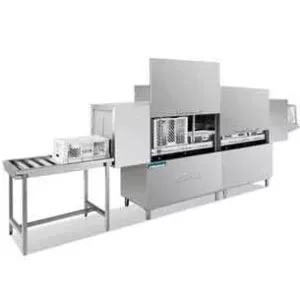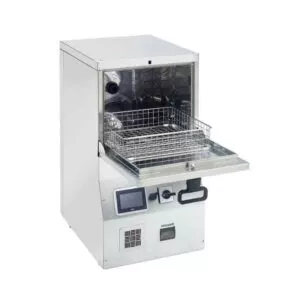Pass Through Bottle Washer
The newly designed pass through bottle washer by Rhima improves hygiene and cleanliness as well as improved efficiency. For example if glass milk bottles are not cleaned and sanitised properly or at all and milk residue remains, this creates a food safety hazard for customers and the dirty bottles have to be thrown out due to their contamination risk.
Industrial bottle washers exist but most are geared up for very large production runs in fully automated environments. Smaller bottle washer/sanitisers are available also, but they are mainly aimed at the laboratory market with low capacities and long cycle times. The brief was to design and build a washer/sanitiser that would wash and sanitise to a HACCP program acceptable level, ease of use, a suitable and viable capacity while at the same time minimising energy and water consumption. The machine had to be commercially viable for use in different similar re-useable environments.
Customers using a glass bottle system is designed to be a circular process for waste elimination (eliminating both recycling and landfill). All (clean) returned bottles that the customer receives are rewashed, sanitised and refilled inside their processing facility.
The pass through bottle washer uses a rack to hold the bottles and has a dedicated nozzle rack to ensure that water goes directly into the bottle. This guarantees that each bottle is cleaned and sanitised. There is a rotating wash arm that goes around the top to clean the outside of the bottles.
Product benefits:
- Thermostop system that meet HACCP requirements
- Hood operated start/stop functions option
- Wash/rinse arm with easy to remove & clean nozzles
- Door safety switch
- Break tank for council regulations
- Deep formed double skinned tank rounded tanks
- Full scrap screens
- Built in rinse aid/sanitiser & detergent pump
- Easy access for maintenance
- Temperature displayed
- Fully automatic process
- Self cleaning vertical pumps
- Double tank filters
The washer allows the reusable glass bottles to be available on the market. Without the ability to wash and reuse them hygienically sustainable ventures wouldn’t be possible.

